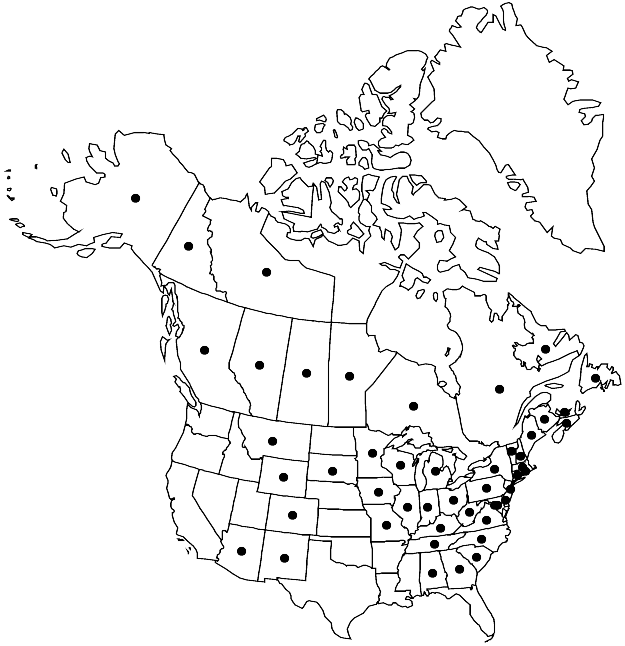Difference between revisions of "Hypnum pallescens"
Prodr. Aethéogam., 67. 1805.
FNA>Volume Importer |
FNA>Volume Importer |
||
| Line 14: | Line 14: | ||
|name=Hypnum depressulum | |name=Hypnum depressulum | ||
|authority=Müller Hal. | |authority=Müller Hal. | ||
| − | }}{{Treatment/ID/Synonym | + | }} {{Treatment/ID/Synonym |
|name=H. pallescens var. protuberans | |name=H. pallescens var. protuberans | ||
|authority=(Bridel) Lesquereux & James | |authority=(Bridel) Lesquereux & James | ||
| − | }}{{Treatment/ID/Synonym | + | }} {{Treatment/ID/Synonym |
|name=H. reptile | |name=H. reptile | ||
|authority=(Hedwig) Mitten | |authority=(Hedwig) Mitten | ||
| − | }}{{Treatment/ID/Synonym | + | }} {{Treatment/ID/Synonym |
|name=Stereodon pallescens | |name=Stereodon pallescens | ||
|authority=unknown | |authority=unknown | ||
| Line 38: | Line 38: | ||
|elevation=low to high elevations (0-2000 m) | |elevation=low to high elevations (0-2000 m) | ||
|distribution=Alta.;B.C.;Man.;N.B.;Nfld. and Labr.;N.W.T.;N.S.;Ont.;P.E.I.;Que.;Sask.;Yukon;Ala.;Alaska;Ariz.;Colo.;Conn.;Del.;D.C.;Ga.;Ill.;Ind.;Iowa;Ky.;Maine;Md.;Mass.;Mich.;Minn.;Mo.;Mont.;N.H.;N.J.;N.Mex.;N.Y.;N.C.;Ohio;Pa.;R.I.;S.C.;S.Dak.;Tenn.;Vt.;Va.;W.Va.;Wis.;Wyo.;Europe;Asia. | |distribution=Alta.;B.C.;Man.;N.B.;Nfld. and Labr.;N.W.T.;N.S.;Ont.;P.E.I.;Que.;Sask.;Yukon;Ala.;Alaska;Ariz.;Colo.;Conn.;Del.;D.C.;Ga.;Ill.;Ind.;Iowa;Ky.;Maine;Md.;Mass.;Mich.;Minn.;Mo.;Mont.;N.H.;N.J.;N.Mex.;N.Y.;N.C.;Ohio;Pa.;R.I.;S.C.;S.Dak.;Tenn.;Vt.;Va.;W.Va.;Wis.;Wyo.;Europe;Asia. | ||
| − | |discussion=<p>Hypnum pallescens occurs from sea level to higher elevations in eastern North America, mainly in forested areas. In western North America, it is less frequent, found from near sea level to subalpine elevations of 2000 m. Plants of this species are firmly affixed to the substrate by rhizoids and usually produce abundant sporophytes in summer; the slightly flattened to somewhat julaceous branches emerge in a horizontal plane; pseudoparaphyllia are infrequent; and the laminal cells are weakly papillose at the ends. Hypnum recurvatum is similar in size, but the alar cells are more numerous than in H. pallescens, and the leaves are hamate to circinate in H. recurvatum, falcate in H. pallescens; pseudoparaphyllia are foliose and mainly four or more cells wide in H. pallescens, while those in H. recurvatum are filamentous, often 1-seriate but generally lanceolate. Hypnum recurvatum occurs mainly on limey rock while H. pallescens is found usually on acid rock.</p> | + | |discussion=<p><i>Hypnum pallescens</i> occurs from sea level to higher elevations in eastern North America, mainly in forested areas. In western North America, it is less frequent, found from near sea level to subalpine elevations of 2000 m. Plants of this species are firmly affixed to the substrate by rhizoids and usually produce abundant sporophytes in summer; the slightly flattened to somewhat julaceous branches emerge in a horizontal plane; pseudoparaphyllia are infrequent; and the laminal cells are weakly papillose at the ends. <i>Hypnum recurvatum</i> is similar in size, but the alar cells are more numerous than in <i>H. pallescens</i>, and the leaves are hamate to circinate in <i>H. recurvatum</i>, falcate in <i>H. pallescens</i>; pseudoparaphyllia are foliose and mainly four or more cells wide in <i>H. pallescens</i>, while those in <i>H. recurvatum</i> are filamentous, often 1-seriate but generally lanceolate. <i>Hypnum recurvatum</i> occurs mainly on limey rock while <i>H. pallescens</i> is found usually on acid rock.</p> |
|tables= | |tables= | ||
|references= | |references= | ||
| Line 62: | Line 62: | ||
|publication year=1805 | |publication year=1805 | ||
|special status= | |special status= | ||
| − | |source xml=https://jpend@bitbucket.org/aafc-mbb/fna-data-curation.git/src/ | + | |source xml=https://jpend@bitbucket.org/aafc-mbb/fna-data-curation.git/src/8f726806613d60c220dc4493de13607dd3150896/coarse_grained_fna_xml/V28/V28_845.xml |
|genus=Hypnum | |genus=Hypnum | ||
|species=Hypnum pallescens | |species=Hypnum pallescens | ||
Revision as of 18:08, 18 September 2019
Plants small, yellowish, golden green, dark green, or brownish. Stems 2–5 cm, yellowish to golden green, usually creeping, regularly to irregularly pinnate, branches 0.2–0.4(–6) cm; hyalodermis absent, central strand weakly developed; pseudoparaphyllia lanceolate. Stem leaves falcate-secund, rarely straight, ovate- to oblong-lanceolate, narrowed to apex, 0.6–1.1 × 0.4–0.6 mm; base not or weakly decurrent, not auriculate; margins usually broadly or narrowly recurved proximally, sometimes to apex, serrulate to nearly entire proximally, serrate distally; acumen short, slender to relatively wide; costa double, rarely single, faint to distinct; alar cells subquadrate or transversely rectangular, subopaque, region not well defined, not excavate, 8–15(–20) cells in marginal row; basal laminal cells broader than medial cells, often yellowish, walls pitted; medial cells 30–50 × 4–5 µm, walls not pitted. Branch leaves with margins frequently strongly serrate; apex more gradually acuminate. Sexual condition autoicous; inner perichaetial leaves oblong-lanceolate, margins serrate distally, acumen slender, costa double or rarely single, faint or distinct. Seta yellowish brown to red, 0.7–1.5 cm. Capsule inclined to horizontal, rarely suberect, yellowish to dark brown, oblong to subcylindric, 1–2.3 mm; annulus 1- or 2-seriate; operculum conic; endostome cilia 2 or 3.
Phenology: Capsules mature Jun–Aug.
Habitat: Rock, boulders, rotten wood, epiphytic on trees, especially tree bases, forested areas
Elevation: low to high elevations (0-2000 m)
Distribution

Alta., B.C., Man., N.B., Nfld. and Labr., N.W.T., N.S., Ont., P.E.I., Que., Sask., Yukon, Ala., Alaska, Ariz., Colo., Conn., Del., D.C., Ga., Ill., Ind., Iowa, Ky., Maine, Md., Mass., Mich., Minn., Mo., Mont., N.H., N.J., N.Mex., N.Y., N.C., Ohio, Pa., R.I., S.C., S.Dak., Tenn., Vt., Va., W.Va., Wis., Wyo., Europe, Asia.
Discussion
Hypnum pallescens occurs from sea level to higher elevations in eastern North America, mainly in forested areas. In western North America, it is less frequent, found from near sea level to subalpine elevations of 2000 m. Plants of this species are firmly affixed to the substrate by rhizoids and usually produce abundant sporophytes in summer; the slightly flattened to somewhat julaceous branches emerge in a horizontal plane; pseudoparaphyllia are infrequent; and the laminal cells are weakly papillose at the ends. Hypnum recurvatum is similar in size, but the alar cells are more numerous than in H. pallescens, and the leaves are hamate to circinate in H. recurvatum, falcate in H. pallescens; pseudoparaphyllia are foliose and mainly four or more cells wide in H. pallescens, while those in H. recurvatum are filamentous, often 1-seriate but generally lanceolate. Hypnum recurvatum occurs mainly on limey rock while H. pallescens is found usually on acid rock.
Selected References
None.